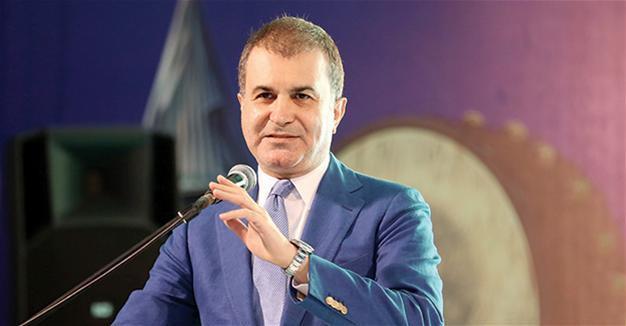Turkey, EU to discuss joint steps against terror
Sevil Erkuş - ANKARA

Turkey and the European Union will hold a senior anti-terrorism dialogue meeting within a month, aiming to take joint steps to combat terrorism, one of the main causes of tension in ties between Ankara and Brussels.
Brussels has recently been displaying a “more serious stance” on the issue of the Fethullahist Terrorist Organization (FETÖ), whom the Turkish government accuses of being behind the July 15, 2016 coup attempt, diplomatic sources told Hürriyet Daily News on condition of anonymity.
EU officials have asked Ankara to send dossiers as evidence to back their allegations against FETÖ, the sources added.
The issue was part of talks held in Brussels on June 13 between political directors from Ankara and Brussels. The sides discussed the fight against the Islamic State of Iraq and the Levant (ISIL), along with the issue of banning symbols of the outlawed Kurdistan Workers’ Party (PKK) in the EU.
Brussels is working on appropriate ways to tackle the issue, the sources said, noting that the bloc may extend the practice to Germany, where symbols of terrorist organizations are banned, and the entire union.
Anti-terror law awaits Erdoğan’s approval
Another topic discussed in the directors’ meeting was talks on visa-free travel for Turkish citizens in the Schengen zone, which was promised as part of a migrant deal signed by the EU and Turkey in March 2016. Brussels has long been waiting for Turkey to fulfil five remaining criteria to open visa dialogue with Ankara, including the revision of the anti-terror law by the Turkish government. The government readied a draft work for the remaining criteria, but is waiting for the approval of President Recep Tayyip Erdoğan.
The March 2016 deal, which aims to stop migration through illegal channels in the Aegean Sea by cracking down on human traffickers and improving the conditions of nearly 3 million Syrian refugees in Turkey, had also become a source of tension between the bloc and Ankara, as the latter criticized Brussels for displaying slow pace in sending humanitarian funds.
While Turkey is asking the EU to speed up the flow of funds for refugees and to press on member countries to increase the number of migrants they take in, Brussels believes the process with Turkey is the fastest, in terms of bureaucracy, so far in EU history.
Customs Union delayed to fall
Turkey and the EU initiated to upgrade the existing Customs Union agreement on industrial goods by extending it to agriculture products, services and public procurements.
The European Commission notified the European Council that it was ready to negotiate with Turkey and called for a mandate late 2016. But the EU is eager to further move on the process after the Cyprus talks, which aims to reunite the island. The mandate for the modernization of the Customs Union is likely to be delayed to fall season, according to sources.
One of the important agenda items at the Brussels meeting was the opening of new chapters in Turkey’s EU accession negotiations. Stressing that Turkey is still under a state of emergency, the EU side told Turkish officials that “new chapters could be opened only if Turkey normalizes.”
 Turkey and the European Union will hold a senior anti-terrorism dialogue meeting within a month, aiming to take joint steps to combat terrorism, one of the main causes of tension in ties between Ankara and Brussels.
Turkey and the European Union will hold a senior anti-terrorism dialogue meeting within a month, aiming to take joint steps to combat terrorism, one of the main causes of tension in ties between Ankara and Brussels.